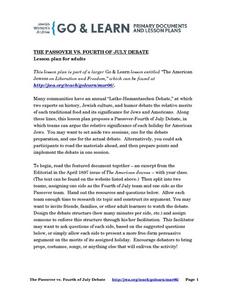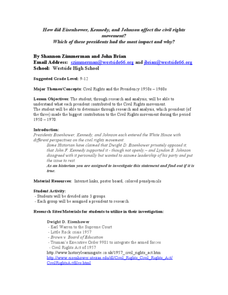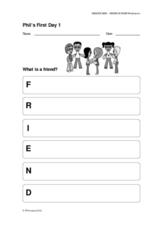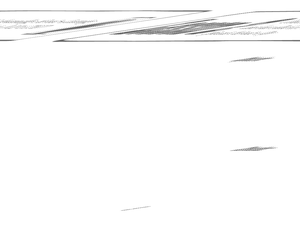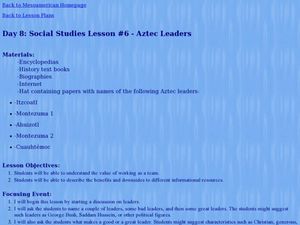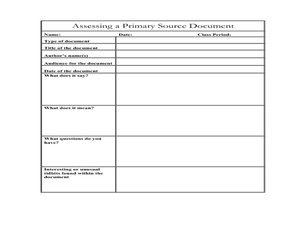Curated OER
Ancient China
Students research different dynasties that existed in China around different themes. They chart each dynasty for written assessment. Each chart has details that chronicles the gathered information.
Smithsonian Institution
The Proper Gentlemen: George Washington and "The Rules of Civility"
Students read and interpret a portion of the "Rules of Civility." They describe the significance of these rules in Washington's time. They discuss how the rules might be significant in today's world. They write rules of etiquette that...
Curated OER
Inquiring Minds
Students review examples of questions that represent different levels of thinking. They then focus on the contributions of leaders from different eras and generate interview questions that a contemporary leader might ask of a...
Curated OER
Westward Ho-- With Multiple intelligences
Young scholars acquire knowledge and literacy (through multiple intelligences) in social studies, language arts, science and math as we study the Oregon Trail. This type of lesson is strong in its attempt to be accessible to all learners.
Curated OER
Local Governments Don't Do Much ... Or Do They?
Students study and explore their local government. They role play members of their City Council and various constituents as they discuss a variety of subjects typical of a city council meeting.
Curated OER
Jamestown Colony
Third graders explore cooperation between British settlers and Native Americans in the Jamestown Colony. They describe how the colonists and Powhatan Indians depended on the environment for their survival. Students write a report on the...
Curated OER
Fit to Lead
Students assess the personalities of Ugandan politicians Yoweri Museveni and Nasser Ntege Sebaggala in the context of modern Ugandan politics, and decide which one might make a better leader of Uganda. Students then consider what their...
Curated OER
The Passover Vs. Fourth of July Debate
Students engage in a debate regarding the Passover vs. Fourth of July holidays for American Jews. They form teams, one for the Fourth of July and one for the Passover and research their topic to build their arguments. After time to...
Curated OER
Rebellions
Tenth graders explore the causes and effects of the rebellions of Upper and Lower Canada and whether rebellion is an effective means of political change. They research and analyze the impact of the 1837-38 rebellions using primary and...
Curated OER
How did Eisenhower, Kennedy, and Johnson affect the Civil Rights Movement?
High schoolers research Eisenhower, Kennedy, and Johnson then utilize their findings to determine what each of the three Presidents contributed to the Civil Rights Movement. For this U.S. History lesson, students work in small groups to...
Curated OER
Phil's First Day 1
In this Phil's first day of school worksheet, students describe what a friend is by listing adjectives, adverbs or phrases that begin with each of the letters in friends.
Curated OER
Multiply by Two-Digit Numbers
For this multiplication worksheet, students solve 13 problems in which dollars and cents or 3 digit numbers are multiplied by 2 digits. Students will need to rewrite some of the problems.
Curated OER
Ethical Dilemmas
Young scholars analyze anthropological case studies. In this specific Ethical Dilemmas lesson, students make ethical judgments based on the case study analysis. Young scholars work cooperatively in small groups to reach their conclusions.
Curated OER
Group Alignment
Middle schoolers discuss proper ways to work in a group. In this character education lesson, students identify the vocabulary words "inclusion" and "exclusion" and create a list of ways to respect others in a group setting.
Curated OER
The Prospect of Democracy in Iran
Young scholars investigate the Iranian presidential election of 2009. In this world affairs lesson plan, students explore the evidence of democratic values in Iran and consider how the public demonstrations following the elections were...
Curated OER
Conducting the "Orchestra": How to Implement the Maestro
Students work as a team member to produce a newspaper. In this newspaper production lesson plan, students understand the role that each staff member plays in the production of a publication as they demonstrate commitment to the team’s...
Curated OER
The Leaves in October
Students determine whether or not to save or spend and defend a decision. In this personal finance lesson, students identify opportunity cost of various spending and saving decisions. Students read a story where two girls share profits...
Curated OER
Mobile Phones
Investigate how mobile phones impact their lives through this technology instructional activity that has students discuss the history of the cell phone and research how cell phones are being used in third world countries. Students create...
Curated OER
Understanding Service Learning
Young scholars define service learning and reflect on the purpose of the Global Youth Service Day. In this service learning lesson, students discuss and define service learning projects and the role youth has in their community. Young...
Curated OER
My Life 24-7
Analyze the "My Life 24-7" project as a part of community involvement. Students discuss the pros and cons of being community involved. They will also write a proposal to increase community involvement and submit a blog entry about the...
Curated OER
Identifying Propaganda Techniques
For this propaganda techniques worksheet, students write the technique next to the sentence read by a candidate. Students complete 12 problems.
Curated OER
Aztec Leaders
Students research the accomplishments of Aztec leaders. In this early civilizations lesson, students research Itzcoatl, Montezuma I, Ahuizotl, Montezuma II, and Cuaucht moc. Students use their research findings to create presentations.
Curated OER
Cuban Missile Crisis
Eleventh graders determine how causation shaped the Cuban Missile Crisis. In this Cold War instructional activity, 11th graders examine photographs and documents related to the crisis and analyze the television address that President...
Curated OER
The People of Kansas: Who Are They and Why Are They Here?
Students examine the settlement patterns of the Kansas Territory. In this Kansas history lesson, students analyze primary documents from the pioneers in the territory. Students write letters or perform skits that feature their findings.









